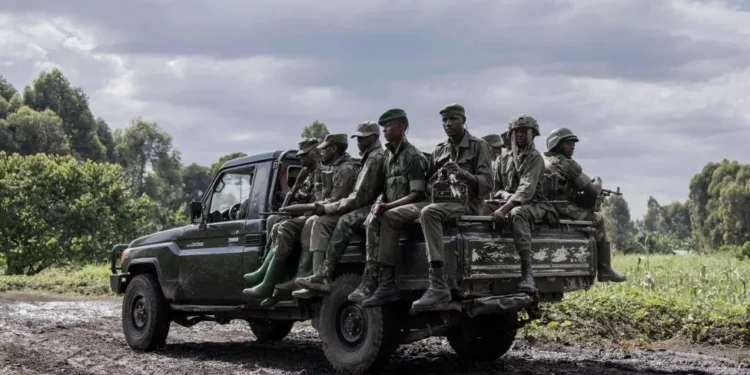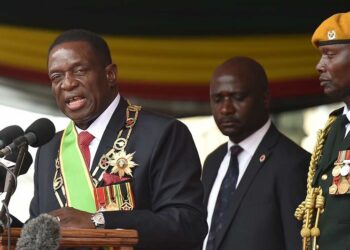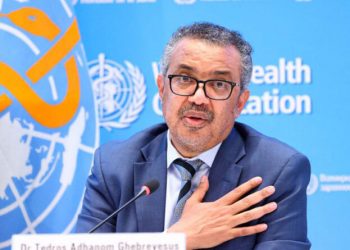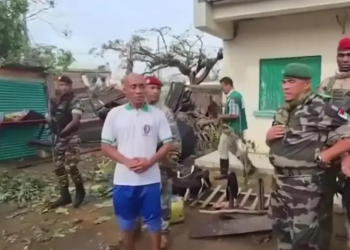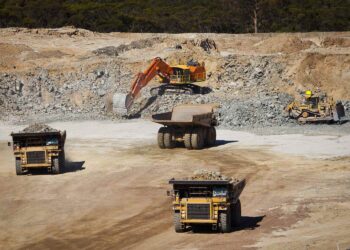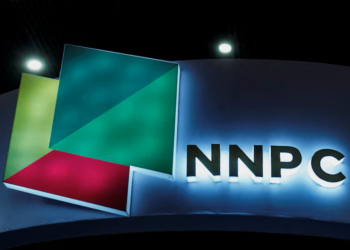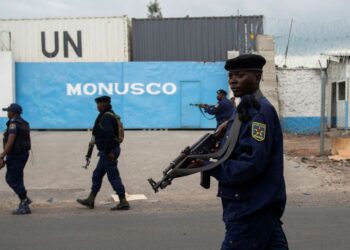Subnational terror (and even state terror) have been a feature of the conflict on the African continent. This ranges from amorphous internationally connected groups in which people locally band together around a religious paradigm, to rebels who terrify civilians in civil wars, e.g. the armed movements in the Democratic Republic of Congo (DRC). Conversely, in the book, ”Militias and the challenges of post-conflict peace: silencing the guns,” published in 2011 by Bloomsbury Publishing and authored by Chris Alden, Monika Thakur and Matthew Arnold showcases that Militias have proven to be a consistent and enduring challenge to achieving peace in war zones around the world. Whether armed by embattled governments in defence of their territory or fostered by external actors in the interests of greed or grievance, these groups occupy an uncertain and deeply controversial position in the changing landscape of conflict. The fact remains that the DRC crisis originally began as a result of a series of postcolonial battles for power after independence from Belgium in 1960, which culminated in the assassination of popular leader Patrice Lumumba and the three-decade military rule under dictator Mobutu Sese Seko.
However, Eastern Congo is home to more than 100 armed groups fighting for land, resources and control of the area’s rich mines. Moreover, Eastern DRC is home to several displaced populations, who are themselves related to several of the key non-state actors involved in conflict today. Such non-state armed groups include M23, the Forces démocratiques de libération du Rwanda, and the Allied Democratic Forces, as refugees have joined these groups in hopes of economic gain or due to ideological fervour.
In the main, the individual combatant receives far less of the economic benefits, as compared to high-ranking officers within the armed movement; which thereby forces individual exploit and loot local populations to supplement their income. However, many are not willing to challenge the leadership and make themselves potential target should they leave the militia or attempt to splinter. One former combatant commented that ‘the AK means power and life’, asserting that beyond merely providing for themselves and their families, power and life symbolized having a livelihood, a sense of self-worth, and control over their destiny and life. However, not to romanticize individual motivations, within the rubric of personal enrichment, there are clear elements of economic exploitation. In addition, it is important to note that the contextual reality of the inability of the state to assert itself in the east, especially with regard to social development, redistribution of resources and power, and provision of security, allows this economic predation to feed into these armed militias’ objectives Kivus (Chris et al 2011, p. 116). In this same spirit, this article discusses the case of the March 23 Movement, rebel group in the Democratic Republic of Congo (DRC). It shows how a variety of events has evolved since the creation of the group, its presence and conducts; the logic of M23 and the Banyarwanda factor; the regional and domestic power play which has influenced the current crisis in DRC.
M23 and Banyamulenge: Unraveling the Forces Driving Conflict
The March 23 Movement, commonly known as M23, is a prominent military group operating in the eastern Provinces of the Democratic Republic of Congo (DRC), primarily consisting of Congolese Tutsi Rwandophones. The peace treaty provided for their integration into the regular military and measures to address the nationality of the Congolese of Rwandan origin, known as Banyarwanda, commonly called “Banyamulenge.” The M23 also has roots in the rebel movements sponsored by Rwanda and Uganda during the First Congo War (1996-1997) against Mobutu Sese Seko, and the Second Congo War against Laurent Kabila (1998-2003). Rwanda’s campaigns in the DRC recruited heavily from the Banyamulenge, tapping grievances around nationality and mobilizing kinship ties. Besides, Rwanda’s army twice invaded DR Congo, saying it was going after some of those responsible for the genocide, and worked with members of the Banyamulenge and other armed groups.
At the same time, their identities continue to be manipulated along dangerous Hutu-Tutsi and Baatu-Niolotic ethnic lines along the broader Great lakes Rwandophone ethnic configuration, despite centuries of mutual coexistence and intermarriage among the major ethnic groups in the Kivus (see Militias and the challenges of post-conflict peace: silencing the guns, pg. 114). Some analysts believe that, the Banyamulenge, just like many other Congolese communities, were established on the territory of what was to become the Belgian Congo in the 18th century long before the demarcation of African colonial boundaries. The Banyamulenge settled in South Kivu between the 16th and 18th centuries, having come from what are today Burundi, Rwanda, Tanzania and Uganda. They are largely cattle keepers. They mostly occupy the southern part of South Kivu province: the Fizi, Mwenga and Uvira territories. In the 1960s and 1970s, some Banyamulenge moved to Katanga in the DRC’s southern region. The region has rich pastures for cattle herding and is close to the large cities of Lubumbashi and Mbujimayi, providing business opportunities. However, in 1998, nearly 20,000 Banyamulenge were forced to flee Katanga after they were attacked for being “foreigners”.
Goma, Congo: Understanding the History of M23 offensive
Alas, in November 2012, the M23 took control of Goma, the capital of Kivu province, and, announced that if the government refused to enter into talks, they would carry on to Bukavu, another major city in eastern Congo. Under the auspices of the International Conference on the Great Lakes Region (ICGLR) and the facilitation of Uganda, negotiations between the Congolese government and the M23 started in December 2012 in Kampala. As part of its efforts to support the national army, the UN Organization Stabilization Mission in the DRC (MONUSCO) deployed attack helicopters in aid of the FARDC’s efforts to halt the M23 advance. The peacekeeping mission has 6,700 and 4,000 troops in the provinces of North and South Kivu, respectively, including, in some places, behind the M23 lines. North Kivu alone is four times the size of Belgium.
In the seven months since its creation, M23 has been very active on the political front and it has secured a remarkable territorial expansion. Analysts agree that the Congolese army is weak, but so was M23. They also agree that M23 could not have grown into a successful force in such a short time without external support. Although, the specific role of outside powers in shaping the fall of the M23 continues to be debated. Up until the final operations against the rebels in October 2013, M23 received RDF (Rwanda Defence Force) troop reinforcements, as the M23 reportedly became almost completely dependent on RDF troop support since the in-fighting in the top ranks. There is widespread belief that increased international pressure on the Rwandan government contributed to reduced M23 support from within Rwanda. Even so, the UN Group of Experts reported in December 2013 that a number of sanctioned M23 leaders continue to move freely in Uganda and the group continues to openly recruit members in Rwanda despite declaring an end to their rebellion on 5 November 2013. Also, numerous armed groups in the DRC continue to pose security threats, such as the FDLR and ADF, who are responsible for grave human rights violations and massive displacement.
In fact, some of M23’s top commanders once served in the Rwanda Patriotic Front (RPF), notes Claude Gatebuke, a survivor of the Rwandan genocide and the Executive Director of the African Great Lakes Action Network. The RPF leadership—including President Paul Kagame and his former Army Chief of Staff, James Kabarebe—once served in Uganda’s military and were part of the rebellion that brought Yoweri Museveni to power in 1986. They then occupied top positions in Rwanda’s military and government after seizing power there with Uganda’s support in 1994. When both countries invaded the DRC in 1996 to remove Mobutu Sese Seko and install Laurent Kabila, a similar pattern transpired with James Kabarebe becoming Chief of Staff of the DRC’s military. However, when Kabila fell out with Uganda and Rwanda, the two countries sponsored another rebellion in the DRC. Over time, Uganda and Rwanda fell out and started supporting proxy forces against each other.
In this regard, the M23’s motives were neither unitary nor consistent, and there is no one single answer as to their ‘real’ motivation. Some of their leaders and combatants were driven by genuine concerns for the Congolese Tutsi community over threats from armed groups, issues of nationality and the return of refugees. Others were likely to have been more self-interested, seeking to exploit the weakness of the Congolese government to defend or expand their control – over land, mining sites, parallel chains of command within the Congolese military, and trade routes – either for their own profit and power, or on behalf of local and regional backers, most notoriously Rwanda. Still others have sought to avoid arrest and, in the case of Bosco Ntaganda, prosecution by the ICC. Loyalty to former commanders, both Congolese and external, are likely to also have played an important part. However, the group’s actions have often contradicted these stated aims. The M23 has been accused of serious human rights violations, including summary executions, rape, and forced recruitment of civilians, including children. Their activities have resulted in the displacement of hundreds of thousands of people, both internally within the DRC and across borders into neighboring countries.
M23 and the Mixed Discourses of Conflict
At the onset of the independence of the DRC in 1960, the country was plunged into a period of conflict and political instability known as the “Congo Crisis”, which lasted until 1965 when Joseph-Désiré Mobutu (Mobutu Sese Seko) ascended to the presidency. However, largely characterised as a period of economic decline, corruption, internal strife, and ethnic tensions – especially in the eastern part of the country, the subsequent Mobutu era kindled the establishment of multiple ANSAs, many in opposition to his leadership. Nevertheless, the brutal killing of over 800,000 Tutsis and moderate Hutus within a few weeks in 1994 in the neighbouring state of Rwanda was a dramatic event. This genocide has been affecting the entire region ever since. It is also considered the origin of the M23 Rebellion. While Uganda and Rwanda have a long history of military intervention in the DRC, first as allies during the First Congo War under a joint military command against the longtime Congolese dictator Mobutu Sese Seko. They were then rivals when they fought on Congolese soil in support of rival movements seeking to overthrow the Congolese government of Laruent Kabila during the Second Congo War. It is hard to predict how the two neighbours, whose top military staff had a flurry of exchanges in recent months, will relate to each other in the latest flare-up.
By the way of contrast, UN Security Council contends that in early 2017, a few hundred remnants of the Uganda wing left Uganda for the DRC, where they sometimes clashed with the DRC’s national army. Although there was no sign of intense recruitment until 2021 when the rebel group resumed attacks. It is extremely hard to estimate how large the M23 group is currently. Still, this is a region that has been volatile for decades and where countless unresolved grievances simmer under the surface. There are hundreds if not thousands of young men who constitute a ready reservoir for recruitment and mobilisation. Nonetheless, the M23’s ability to occupy and control several localities in North Kivu with its limited military force has led many experts to believe that the rebel group has received military support from Rwanda and to a lesser extent Uganda. The DRC government has strongly opposed any form of peace talks with M23. Mediation talks began in the Angolan capital in June 2022.
The longstanding conflict has left many people across the region displaced and in dire need of humanitarian aid. The Rwandan-backed M23 recently captured regional capital Goma in an anarchic and mineral-rich part of Democratic Republic of Congo where wars in 1996-1997 and 1998-2003 drew in outside nations and killed millions, mostly from hunger and disease. At least 700 people in the city were killed and close to 3,000 injured as the rebels clashed with DR Congo’s army and its allies, according to the UN and the Congolese government. Increased fighting around the city prompts protests in Kinshasa and attacks on several embassies, including the United States, Belgium, and France, in anger over the international community’s failure to stop the rebel advance. The UN Security Council plans an emergency meeting, and African neighbours also begin to convene over the matter. In addition, the region occupied by M23 borders Rwanda, Uganda, and DRC and has a huge traffic jam of commercial trucks carrying goods from the Kenyan port of Mombasa through Uganda to Goma and Bukavu in the DRC. Therefore, controlling the border town of Bunagana – as M23 currently does – provides an opportunity to raise additional funds through informal taxation. The region is also rich in terms of natural (forest and mineral) resources. In the past, access and control of these resources have also motivated several actors to support rebel groups.
M23: Rebels Without a Pause and the Political Power Play
In the political sphere, in January 2019, Félix Tshisekedi was inaugurated following controversial presidential elections. Most observers agree that he had come second in the elections but reached an agreement with incumbent president Joseph Kabila. This agreement gave Tshisekedi the presidency but allowed Kabila’s coalition to retain power in parliament and control a large proportion of national and provincial government posts. The early years of the Tshisekedi administration could have been an opportunity to tackle the problem of the M23, which was then a weakened force. However, this lack of threat also left the government with no sense of urgency in the face of the insurgents.
Withal, the new M23 rebellion has a new dimension. It has been joined by a politico-military group called Alliance Fleuve Congo (AFC). AFC is led by Mr. Corneille Nanga. Nanga has an interesting story. He was the President of the DRC Independent Electoral Commission (IEC). He presided over the elections that brought Felix Tshisekedi to power. However, he is on record that President Tshisekedi’s presidency was not won at the ballot, it was a political agreement struck between former president Kabila and Tshisekedi. This deal, according to Nanga, was made in the Presence of three African Presidents. Nanga has accepted his responsibility in the deal that brought Tshisekedi to power. Angelo Izama, an analyst with the Uganda-based Fanaka Kwawote think tank indicated that, M23 is more of a threat now because the group is trying to “decouple the question of self-determination in eastern Congo” from evidence of Rwandan support. Also, the rebels want to provoke a national discussion on widespread feelings of neglect in eastern Congo while gaining “as much territory as possible such that they can force the Congolese state to deal with questions of genuine autonomy and to force some kind of negotiation,” he said. Forcing political negotiations is “a smart move” for the rebels, “the only path out of this crisis,” he added.
Ending the Status Quo
The eastern province is acclaimed for its vast natural and mineral resources including diamonds, gold, and tin among other minerals. The common grievance that M23 is fighting for is the segregation of Tutsis and other minority tribes in the DRC by the Kinshasa government and its people. The Government of Rwanda is accused of supporting the M23 rebels, but it denies the allegation. The armies of Uganda, Rwanda and Burundi have in one way or the other been involved in the eastern DRC conflict. Angola has tried to broker a peace deal among the warring parties in eastern DRC with very little success. The recent deployment of multilateral forces like Southern African Development Community (SADC) Mission in the Democratic Republic of Congo (SAMIDRC) may improve the DRC military’s chances of degrading the M23 group’s capabilities and pushing them out of key strongholds. This development could impact the balance of power and influence on-the-ground realities. The M23 is a direct consequence of the failure to achieve a durable solution to in a conflict plaguing eastern DRC for almost two decades. The chief cause of failure has been the lack of political compromise.
The fact remains that, the renewed violence is an imperative to reverse this situation through new political and diplomatic strategies. The international community should engage with the conflict from a regional perspective and require the unequivocal commitment of all actors. Although, leaders from southern and eastern Africa are trying to mediate between the two sides. In any case, a ceasefire between the DRC and the M23 is not enough. What is needed is a long-term, durable solution that addresses the root causes and fears that are driving the armed conflict. Chris et al on page 127 conclude that, The lack of focus on capacity-building at the national, provincial and local levels in the DRC clearly reveals the international community’s failure to understand local realities. The focus on robust technocratic objectives such as disarming and demobilizing combatants without an effective (and properly funded) reintegration programme, undermines the overall demilitarisation process. In addition, the political intrumentalization process in the country.















































